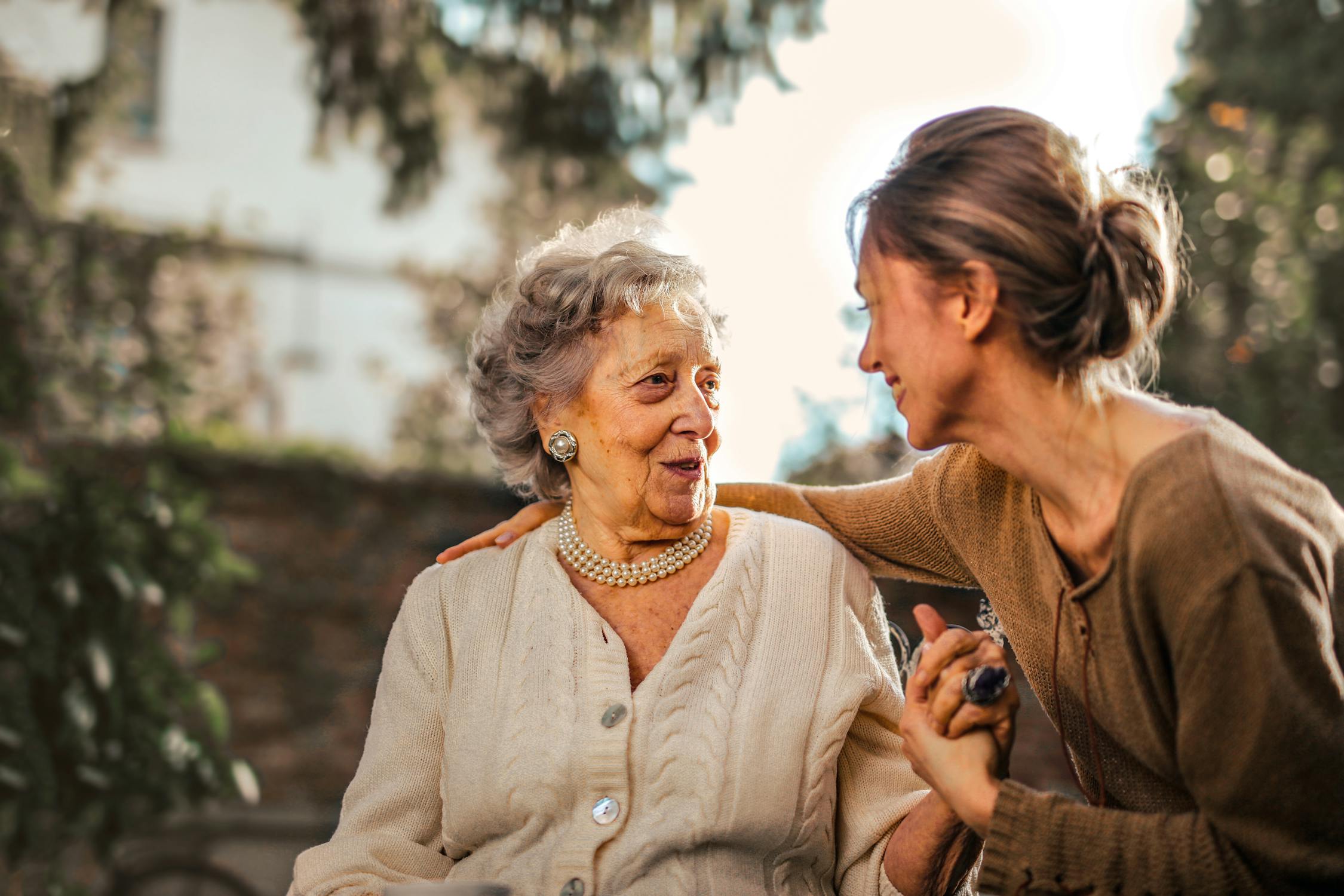 By: Isabelle Vauclair, a Laurier Institution Blog Contributor
By: Isabelle Vauclair, a Laurier Institution Blog Contributor
Discussions around mental health have come a long way in terms of inclusion and acceptance. Even communities with strong stigmas around mental health and illness are reconsidering their approaches. Around the globe, medical professionals, educators, and advocates alike have made efforts to broaden the scope of the conversation. The question this blog will address is: Where do seniors fit into this discussion?
With the rise of social media advocacy, more and more young people are opening up about their mental health struggles, the ways they cope, and the ways they still need help. The subject of seeking therapy or counselling is no longer seen as taboo. Unedited selfies, lengthy captions, and hashtags flood our timelines in an attempt to set the record straight: we’re not always ‘picture perfect,’ and neither is our mental health.
Social attitudes towards mental health continue to shift from judgment to open-mindedness as platforms of every size shed light on intersectional issues between mental health and race, status, etc. As we age, however, this discussion seems to taper out.
According to Statistics Canada, as many as 1.4 million elderly Canadians report feeling lonely. So the question is, are seniors getting the mental health support that they need? To answer this question, we must first distinguish the differences between mental health and mental illness.
What is mental health versus mental illness?

To put it simply, mental health is a person’s sense of well-being. This is defined by how one interacts with others, copes with everyday events, and processes their thoughts.
On the other hand, mental illness refers to specific, diagnosed disorders caused by physical, social, environmental, and/or psychological factors. A mental illness can be inherited genetically, develop after a head injury, or come from a significant life event or trauma, such as divorce or form of abuse. Not all mental illnesses incite self-destructive or violent behaviours, contrary to stigma.
According to the Canadian Mental Health Association, common mental health disorders in older adults include:
- Anxiety disorders
- Depression
- Dementia and Alzheimer’s
- Delusional disorders
- Paraphrenia & late-onset psychotic disorders
Anxiety and depression are also among the top mental health disorders experienced globally by teens and young adults. Just as teenagers face a challenging transition into adulthood, our elderly loved ones face a significant transition of their own. With this comes a number of unique challenges that few can empathize with from experience.
So, how can we ensure that seniors feel comfortable enough to voice their mental health concerns?
Mental health resources for seniors must address the following external factors that ensure their physical, emotional, and spiritual well-beings:
- Housing
- Income
- Healthcare services
- Transportation & mobility
Seniors are often vulnerable to changes that are outside of their control. Eventually, they retire from their careers, their bodies slow, and they begin to rely more heavily on others to complete daily tasks. Mental health is not one-size-fits-all, nor does it follow a linear path. However, there is a strong correlation between one’s mental health and the ageing process.
How does our experience with mental health change as we grow older?
A loss of physical strength and independence can lead to greater frustration and stress, which people may internalize or unintentionally take out on others. In addition to their own personal struggles, life experiences, and barriers, seniors often grapple with physical limitations they have never experienced before. As a result, their mobility and memory may slow down, their sight may diminish, and they may become more prone to illness and disease. All of these sudden changes can spark a decline in one’s mental wellbeing.
For many, retirement from a full and engaging career is a difficult transition. A loss of routine and interaction with peers can lead to feelings of isolation, loneliness, and demotivation. While some may see it as a permanent vacation from their 9 am-5 pm, others may struggle to find their purpose and identity in this new stage of life.
Taking up new hobbies, going outside for light exercise, and increasing socialization with neighbours is a good place to start. But at what point do the by-products of “normal ageing,” such as depression, become more severe mental health problems?
Research shows that many of these mental health problems are actually preventable and treatable. Unfortunately, however, the lack of adequate mental health resources and community support for seniors has normalized these gaps in service. While some support does exist in acute and long-term care facilities, these tend to focus on the needs of individuals with dementia or serious mental illness.
Thus, there is an urgent need for a more inclusive framework that addresses the needs of all seniors to help them lead healthier, more fulfilling lives.
How has the pandemic affected seniors and their mental health?
According to the Canadian Institute for Health Information (CIHI), 1 out of 5 of the seniors surveyed experienced emotional distress in the past 2 years, which they found difficult to cope with on their own. Since the outbreak of Covid-19, that number has likely risen.
Many have suffered emotional distress caused by separation from their loved ones. Additionally, hundreds of facilities across Canada have experienced outbreaks of infection. This has made it challenging to provide mental health care to residents where medical staff may have previously made home visits to provide care. Limited availability of telemedicine technology and quality virtual care has greatly affected the lives of seniors who are isolating due to infection.
Although the virus can affect individuals of any age, older adults are especially vulnerable to serious infection. Watching their peers being hospitalized has unfortunately become a reality for many.
How can we better support individuals at every stage of their lives?
While it is important to engage individuals in mental health topics while they’re young and their brains are still developing, it is equally important for older populations to feel supported. The process of ageing can be frustrating, but there are proactive ways to help ageing adults maintain strong mental health.
Independence – Seniors should retain independent decision-making as much as possible and be in control of their lives. No one becomes less deserving of their autonomy as they age.
Dignity – Treat seniors with respect and accept them as individuals, regardless of their health, age, race, socioeconomic status, etc. Practice active listening to show that you appreciate their accomplishments and value their experiences.
Socialization – As seniors continue to age, it is important for them to remain active and involved in their communities. Individuals who socialize more are less likely to become depressed.
Fairness – Regardless of age, background, or status, residents of care facilities should be treated equally by staff.
Security – Seniors should have access to safe and supportive living arrangements, whether in their own homes or long-term care facilities. They are also entitled to adequate income to retain financial independence.
The Bottom Line? Seniors face significant challenges that are outside of their control. Mental health discussions must recognize these common and inevitable life changes to better support individuals as they age.


